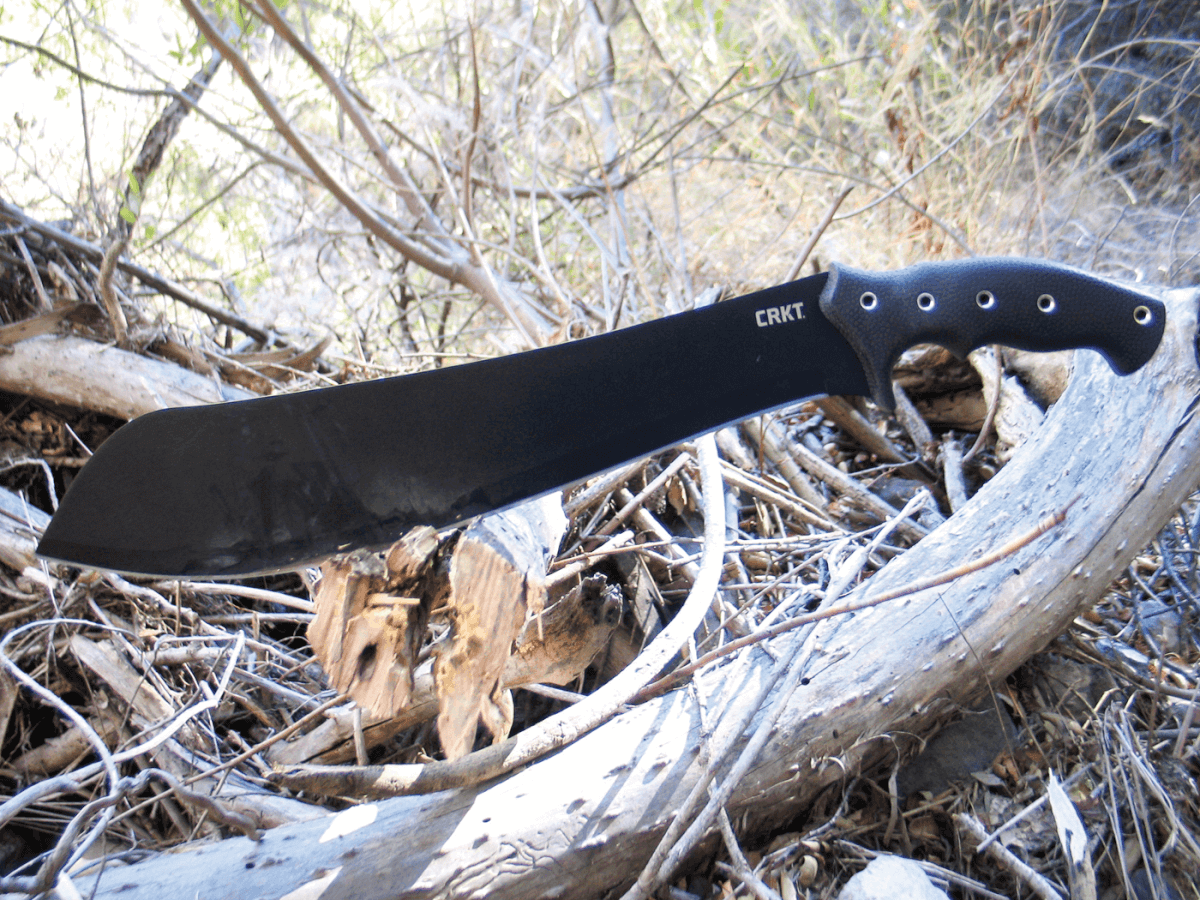For several hundred years, the machete has been the favored sidearm of men in tropical countries, partly because it symbolizes the uprising, the revolt and the collective angst of machete-wielding labors of the sugarcane fields. For example, the Puerto Rican terrorist organization Boricua Popular Army are commonly referred to as Macheteros — the Machete Wielders. It’s also a practical tool to clear the underbrush of the encroaching rain forest, slice open coconuts and hard foods or to crudely chop wood.
As a weapon, it was used widely by the Haitian Tonto Macoute and the Interahamwe militias of the Rwandan genocides, and played a major role in the Cuban war of independence against Spain in 1868 when Carlos Manuel de Céspedes freed his slaves, armed them with machetes and started the Ten Years’ War. They have a Spanish word for the sound of a machete cleaving human flesh: machetazo.

A parang is a general term for any wide utilitarian blade, and this is not a fancy parang. There should never be a fancy parang in your hands, as it goes against the reason for their very existence. Fancy knives stay home in boxes and in cases on the wall; like a Jeep, this machete is made to get dirty. It was made to cut, to slash, to bludgeon. It was made for the harshness the world has in store for it, the uprisings, the rebellions, and for times when the trail gets too narrow.

Columbia River Knife and Tool (CRKT) offers this parang with the moniker HalfaChance, suggesting that when all is lost and the outlook for survival seems less than bleak, at least with the machete you still stand half a chance. Its nearly 20 inches becomes an extension of your arm thanks to designer Ken Onion’s ergonomic handle and the long sweeping drop-point blade, a traditional Southeast Asian blade shape for a machete. The cutting edge has an upsweep toward the point, perfectly matching the trajectory of the swing to the horizontal plane of what is being struck no mater where on the blade contact is made. On the first time taking it from the box, the HalfaChance is a substantial heft but has a balance that makes it seem light and manageable. The 65Mn carbon-steel blade is bead-blasted smooth with a powder-coated black finish. It repels dirt, sap, dust and the sticky liquids produced by shattered foliage.

After a considerable thrashing, nary a sign of wear was observed on the blade’s finish, nor was their any hand fatigue thanks in part to the double-injected molding of the handle (thermoplastic rubber over polypropylene with a pigskin texture), which is designed to fit even the largest hands. The deep finger divots offer a reassuring grip on the handle to suggest the only way you’re going to let go of this machete is if you’re throwing it. Bored into the handle are five holes suitable for a variety of lanyard placements depending on the employment of the parang. On top, there is a hint of some jimping, but let’s face it, a machete wasn’t made for detail work; it was made to strike fear in the face of foe and fern, not to carve your girlfriend’s initials into a tree.

The sheath is nylon-reinforced and heavy-duty. It has three snaps that retain the Half-a-Chance snugly therein, which is a shortcoming considering snaps of this quality rust easily. However, the nine holes offer paracord-wrapping possibilities similar to those of the handle. It attaches to your belt in two possible ways: either dangling from the chromed ring or strapped snugly to your belt.



Whether you’re blazing a trail toward salvation, clearing some brush beyond the chicken coop, or joining in the crusades of the local revolution, if you don’t have HalfaChance at your side, you don’t have half a chance at success. However, if you don’t like those odds, check out CRKT’s similarly designed parang: ChanceInHell.
Manufacturer: CRKT
Model: HalfaChance
Overall Length: 19.5 inches
Weight: 1 lb. 4.4 ounces
Blade Length: 14 inches
Blade Thickness: 0.1 inches
Blade Material: 65Mn Carbon Steel
Rockwell Hardness: 52-56
Handle Material: Thermoplastic rubber over polypropylene
Sheath: Black Nylon
Sheath Weight: 6.1 ounces
MSRP: $69.99

Editor’s note: A version of this article first appeared in the February 2015 print issue of American Survival Guide.


